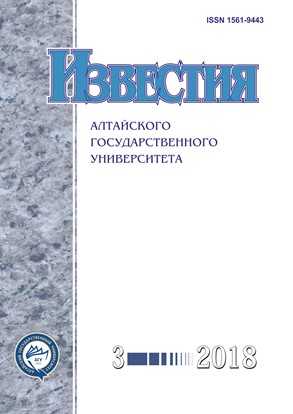About the Finish Moment of the Illegal Sale of Drugs
Abstract
The article is devoted to the new recommendations of the Russian Federation Supreme Court about sale of narcotic drugs. Examples of court practice illustrate old and new approaches to understanding the finished sale of narcotic drugs. The article notes the inconsistency of the new approach to the qualification of narcotic drugs sale with the provisions of the criminal law theory and the adopted approaches to the qualification of crimes. The authors of the article criticize the new concept of an attempt on the narcotic drugs sale and the finished sale of narcotic drugs. It is concluded that the understanding of sales in the study crime does not coincide with the understanding of sale in other crimes. The question about preparing narcotic drugs for sale is being investigated. The authors come to the conclusion that one of the forms of preparation for the sale of narcotic drugs is now unreasonably recognized as an attempt on sales. The problems that arise when applying new recommendations in judicial practice are noted. The opinions of other authors that point to problems in the new approach are given. It is noted that in court proceedings the accused and their defenders refer to an illogical understanding of sales. The authors justify the need to analyze the problem in order to find a solution that would correspond to the theory of criminal law.
DOI 10.14258/izvasu(2018)3-21
Downloads
Metrics
References
Приговор Моршанского районного суда Тамбовской области от 03.08.2017 [Электронный ресурс]. — URL : https://rospravosudie.com/.
Приговор Орджоникидзевского районного суда г. Екатеринбурга от 05.07.2017 [Электронный ресурс]. — URL : https://rospravosudie.com/.
Приговор Калининского районного суда г. Чебоксары Чувашской Республики от 17.05.2017 [Электронный ресурс]. — URL : https://rospravosudie.com/.
Обзор судебной практики Верховного Суда Российской Федерации от 16.02.2017 № 1// СПС «Консультант-Плюс».
Апелляционное определение Верховного Суда Республики Марий Эл от 03.05.2017 [Электронный ресурс]. — URL : https://rospravosudie.com/
Методические рекомендации ФССП России по выявлению и пресечению преступлений в сфере экономики и против порядка управления, совершенных сторонами исполнительного производства от 15.04.2013 № 04-4 // СПС «КонсультантПлюс».
Кирюшкин М.В. Проблемы применения новых правил квалификации действий, совершенных в целях сбыта наркотических средств // Уголовное право. — 2016. — № 1.
Обзор судебной практики по уголовным делам о преступлениях, связанных с незаконным оборотом наркотических средств, психотропных, сильнодействующих и ядовитых веществ от 27.06.2012 // Бюллетень Верховного Суда РФ. — 2012. — № 10.
Токманцев Д.В., Винокуров В.Н. Новые правила квалификации незаконного приобретения и незаконного сбыта наркотических средств // Уголовное право. — 2016. — № 1.
Кравчук А.Г. Проблемы правоприменительной практики при рассмотрении уголовных дел, связанных с незаконным оборотом наркотических средств // Российский следователь. — 2016. — № 19.
Copyright (c) 2018 Н.В. Тыдыкова, Л.Ю. Кирюшина

This work is licensed under a Creative Commons Attribution 4.0 International License.
Izvestiya of Altai State University is a golden publisher, as we allow self-archiving, but most importantly we are fully transparent about your rights.
Authors may present and discuss their findings ahead of publication: at biological or scientific conferences, on preprint servers, in public databases, and in blogs, wikis, tweets, and other informal communication channels.
Izvestiya of Altai State University allows authors to deposit manuscripts (currently under review or those for intended submission to Izvestiya of Altai State University) in non-commercial, pre-print servers such as ArXiv.
Authors who publish with this journal agree to the following terms:
- Authors retain copyright and grant the journal right of first publication with the work simultaneously licensed under a Creative Commons Attribution License (CC BY 4.0) that allows others to share the work with an acknowledgement of the work's authorship and initial publication in this journal.
- Authors are able to enter into separate, additional contractual arrangements for the non-exclusive distribution of the journal's published version of the work (e.g., post it to an institutional repository or publish it in a book), with an acknowledgement of its initial publication in this journal.
- Authors are permitted and encouraged to post their work online (e.g., in institutional repositories or on their website) prior to and during the submission process, as it can lead to productive exchanges, as well as earlier and greater citation of published work (See The Effect of Open Access).








